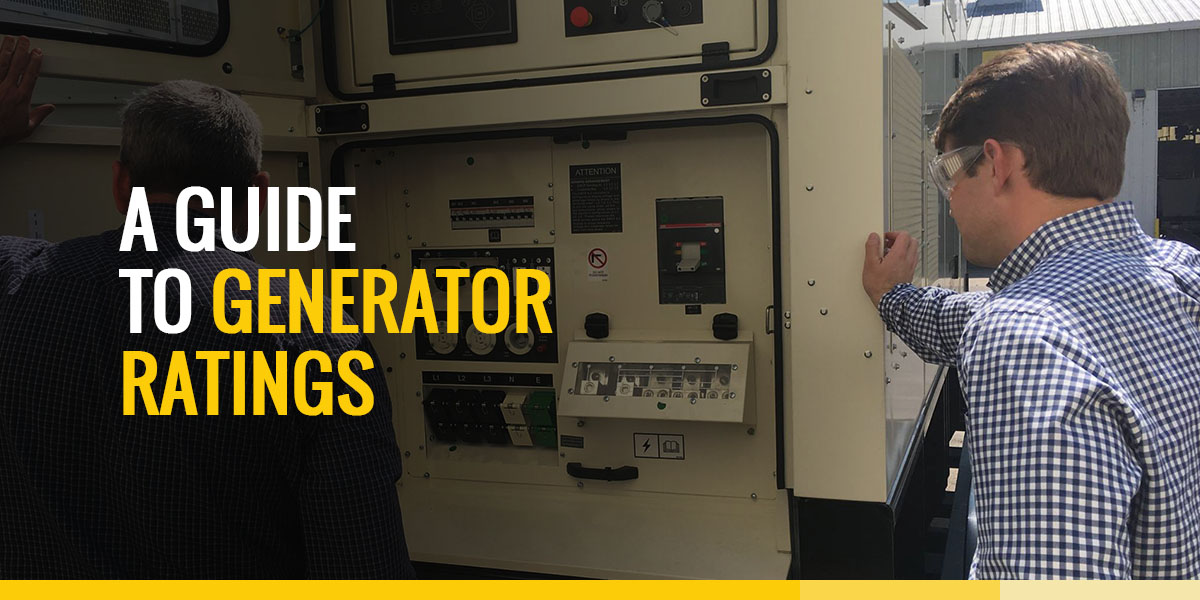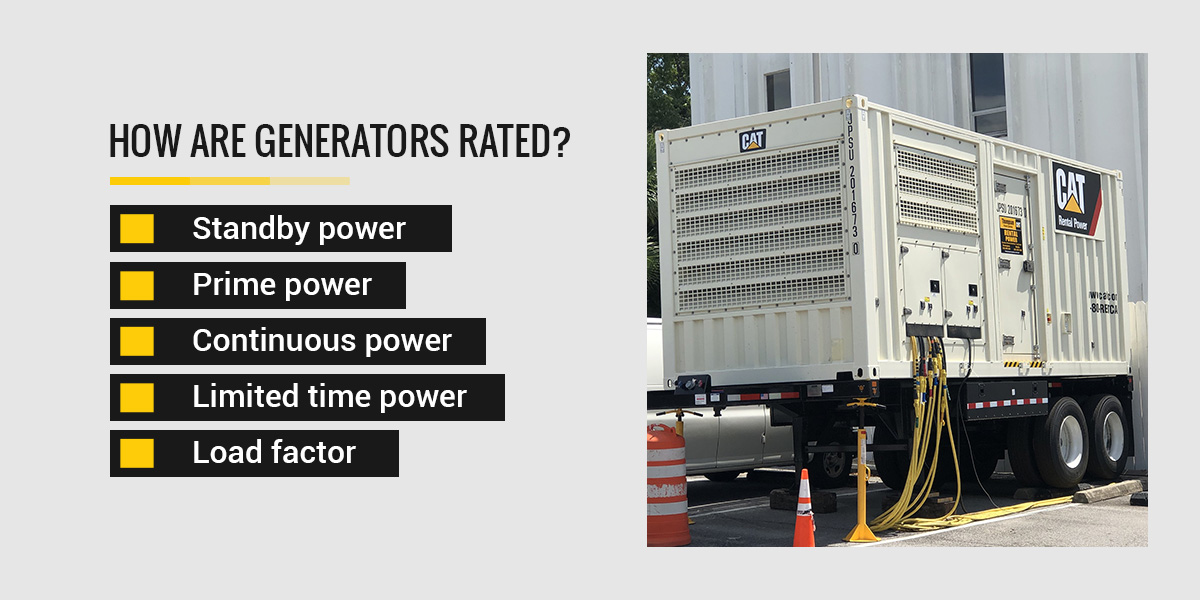

Generators are an excellent way to maintain reliable power during an outage or in areas with little to no grid coverage, including remote worksites where electrical power is needed but unavailable. It’s important to understand the technical specifications of generators before you purchase one for your business to ensure you’re getting enough power for your operations.
Generator set (genset) ratings help you make the best choice when buying a new generator. Different ratings, such as eKW and kVA, help inform buyers about the power capabilities of different generators so they can determine whether a specific model can bear the load needed for their operations.
The eKW generator rating, also written as kWe, is the total generator output after efficiency losses or the loss from mechanical to electrical energy. The generator’s electrical power is generally measured in either watts or kilowatts. It’s essential to understand the eKW of a generator since equipment and appliances directly use this electrical power while the generator is operational. Without the proper amount of electrical power, you may be unable to run all the necessary equipment or appliances for your operations.
The kVA generator rating measures apparent power, including real and reactive power. In simple terms, a kVA for a generator tells you how much power output the machinery is capable of for different operations. Reactive power differs from real power since it’s not consumed and cycles between the load and power source.
The kVA rating indicates power output, meaning the higher the rating, the more power your generator can produce. You can calculate kVA by multiplying the voltage by the amps. You can also convert kVA into eKW by multiplying by the power factor, which differs based on the phase of the generator.

Apart from eKW and kVA, generators are rated using various factors. Standard generator ratings you’ll find in the industry include:
Look at each of these ratings when comparing generators to find the best system for your operations. Some generators will be more suited to your applications than others, so it’s essential to understand the differences between each rating to make the best choice for your business.
When choosing a generator for your applications, you must ensure it has enough capacity to provide power during peak work conditions. There are two methods you can use to determine what generator you need for your business.
Calculating your full load capacity can help you determine the proper generator size to provide enough power for your applications. Follow these steps to calculate the full load capacity:
Using the full load kWs, you can determine the full load capacity of your applications, allowing you to purchase the proper generator to meet the power needs of your business. Calculating full load capacity is an excellent way to ensure you choose the right generator rating, especially if you have more complex work environments that are frequently changing.
If you run a simpler operation, such as a retail store or a business that operates out of a single building, and you use the same amount of energy consistently, you can calculate what size generator you need based on square footage.
Generally, you’ll want to start with 50 kilowatts to power and add 10 kilowatts for every square foot for retail and five kilowatts for commercial applications. For example, if your business is 500 square feet, you would multiply 500 by 5 to get 2,500. Finally, you’d add 50 for 2,550. You’d want to look for a generator with kW ratings at or above 2,500 to ensure you have enough electrical energy to power your business. You can also consult a power systems specialist for professional advice about the best generator for your business.
If you’re looking for an effective power solution for emergencies or remote work, Thompson Power Systems has you covered. We offer new, used, and rental generators to meet the needs of your applications, whether you need a system to keep your business operational during an outage or to sustain power for critical systems.
We have been serving Alabama and northwest Florida for over 60 years and are a leader in emergency and backup power systems. Our team of experts can help you find an effective power solution to ensure you sustain your operations through critical events or at remote worksites. Browse our selection of power generation equipment or contact us for help choosing the best system for your applications.